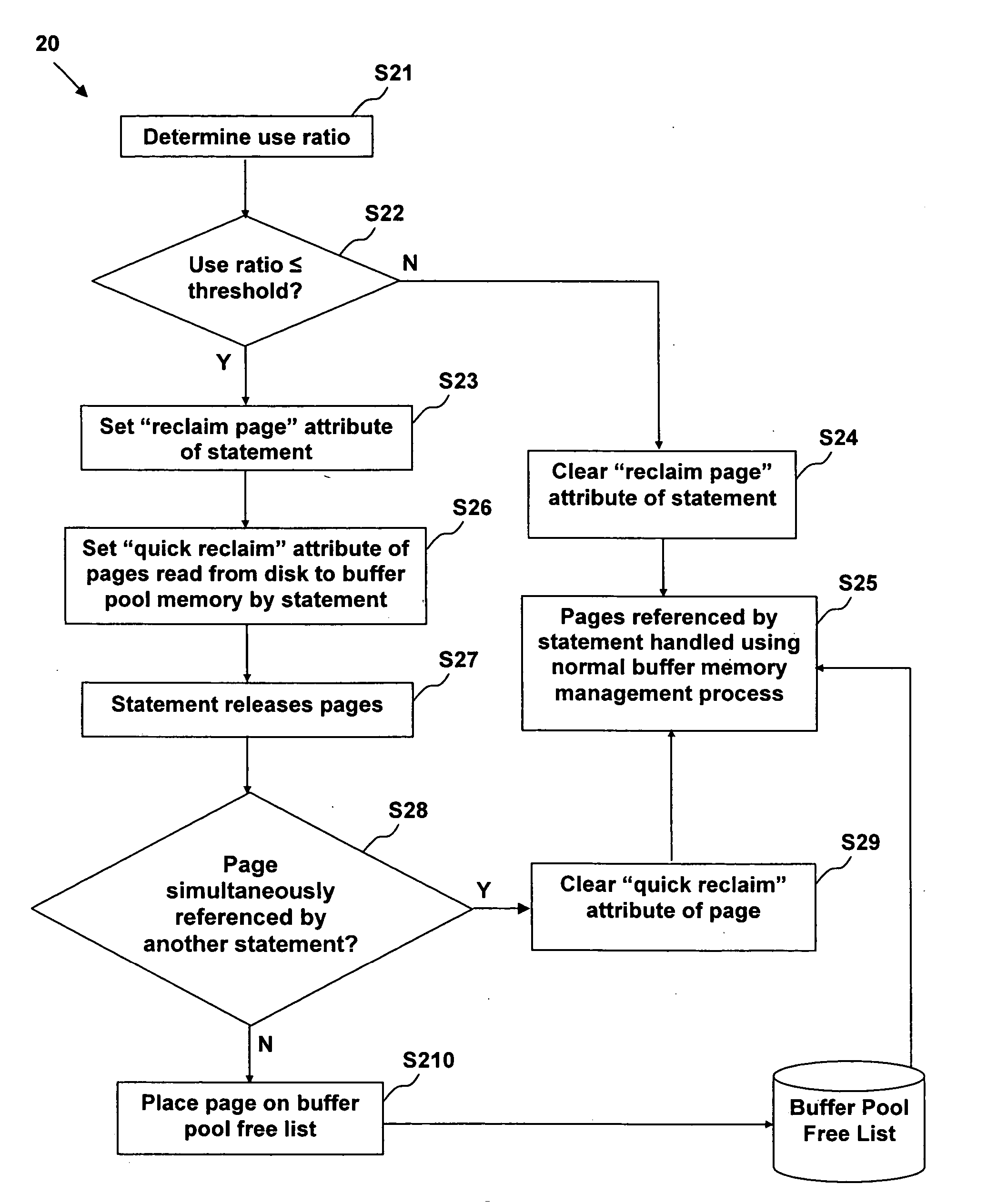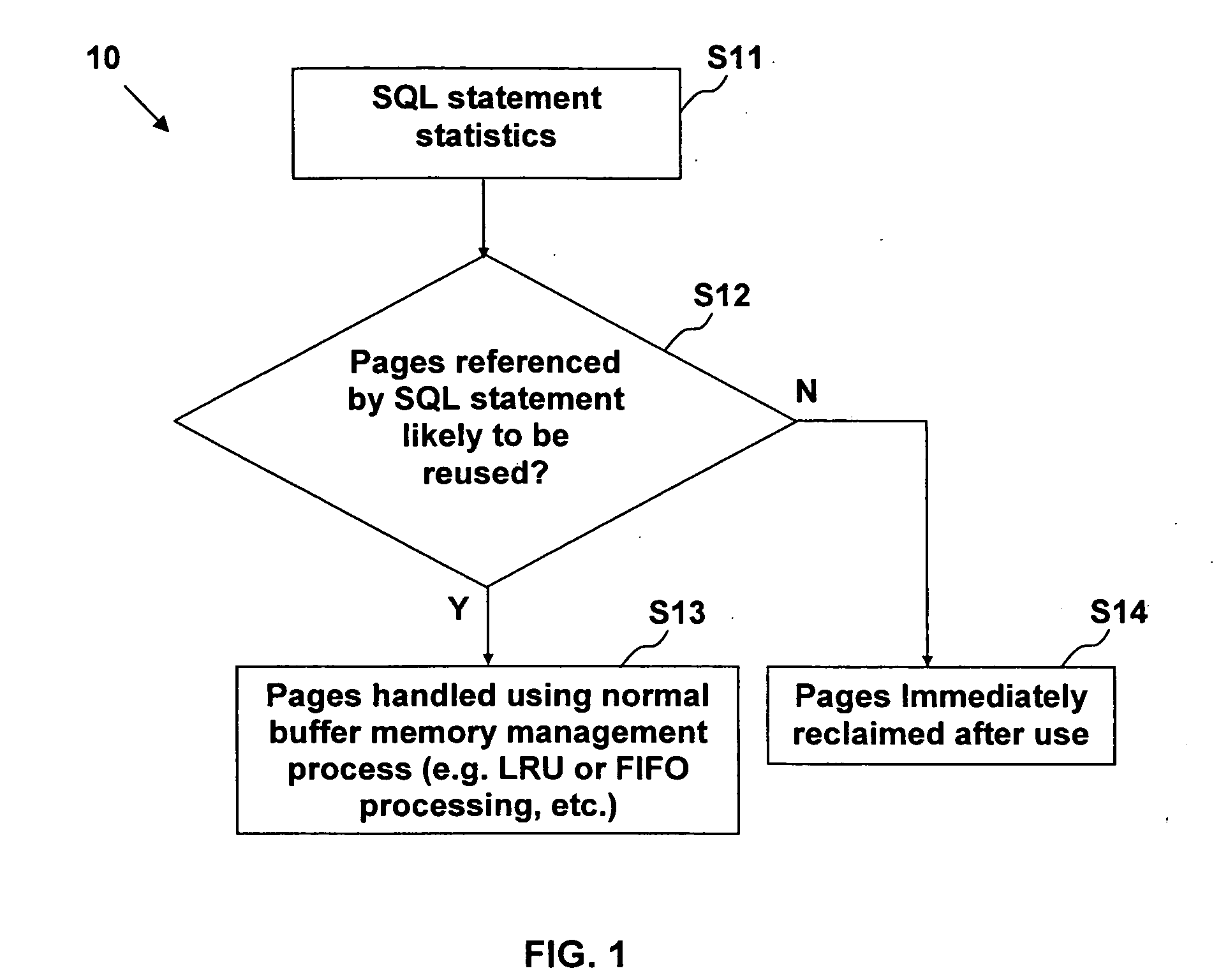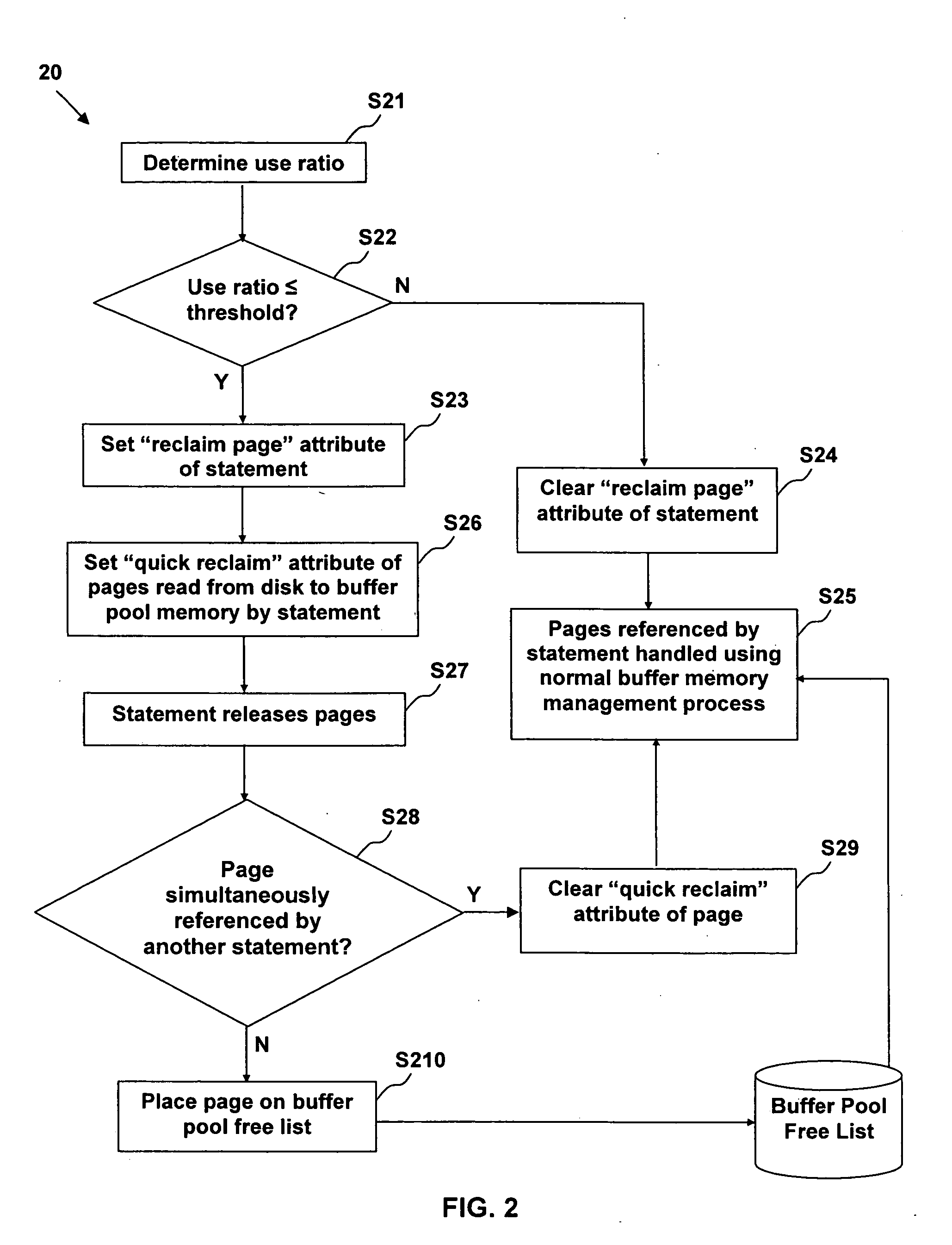Adaptive database buffer memory management using dynamic SQL statement cache statistics
a database and database technology, applied in the field of database buffer memory management, can solve the problems of difficult to determine the performance impact, complex activity of designing separate buffer pools (determining optimal size, etc.), and achieve the effect of easing the process of managing memory in buffer pools
- Summary
- Abstract
- Description
- Claims
- Application Information
AI Technical Summary
Benefits of technology
Problems solved by technology
Method used
Image
Examples
Embodiment Construction
[0020] As indicated above, the present invention provides a method, system, and computer program product for adaptive database buffer memory management using dynamic Structured Query Language (SQL) statement cache statistics.
[0021] Database systems using dynamic SQL maintain a variety of performance-related statistics for statements in the statement cache. These vary from system to system, but generally include statement ID, elapsed time, prepare time, page references (e.g., getpages in DB2), synchronous I / O, asynchronous I / O, copies being executed, etc. Historical page use ratios can be calculated using statistics for page references, I / O operations, and prefetched pages. Examples of the calculation of a page use ratio will be presented in detail below.
[0022] The present invention takes the SQL statement statistics, which are designed for use in performance analysis (e.g., locating inefficient SQL statements, finding statements having I / O delays or serialization constraints, etc....
PUM
 Login to View More
Login to View More Abstract
Description
Claims
Application Information
 Login to View More
Login to View More - R&D
- Intellectual Property
- Life Sciences
- Materials
- Tech Scout
- Unparalleled Data Quality
- Higher Quality Content
- 60% Fewer Hallucinations
Browse by: Latest US Patents, China's latest patents, Technical Efficacy Thesaurus, Application Domain, Technology Topic, Popular Technical Reports.
© 2025 PatSnap. All rights reserved.Legal|Privacy policy|Modern Slavery Act Transparency Statement|Sitemap|About US| Contact US: help@patsnap.com



